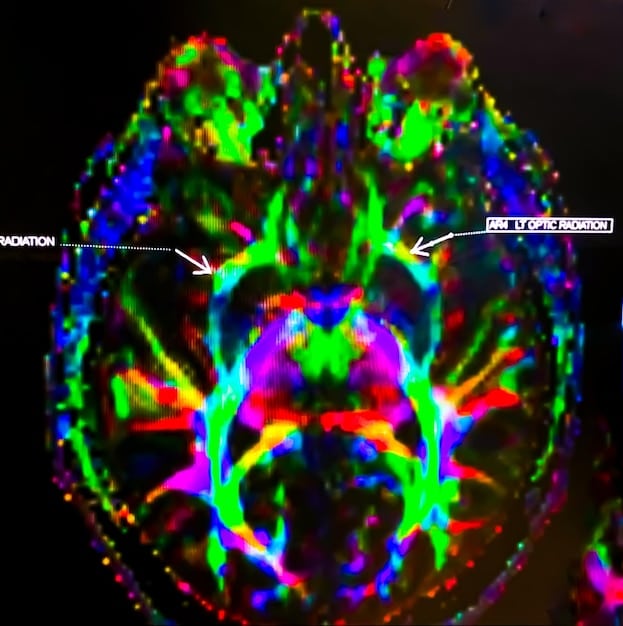Unlock Mental Wellness: The Power of Gratitude in Your Daily Life

The power of gratitude lies in its ability to shift our focus from what we lack to what we have, fostering a more positive outlook and significantly improving mental health through consistent, daily practice.
Do you ever feel overwhelmed by daily stressors? Discover the power of gratitude: how a daily practice can improve your mental health by 20% by changing your perspective and cultivating a more positive mindset. This simple yet profound habit can lead to significant improvements in your overall well-being.
Understanding Gratitude and Mental Health
Gratitude, often described as the feeling of appreciation and thankfulness for the good things in our lives, is more than just a polite emotion. It’s a powerful tool that can significantly impact our mental health. Understanding the connection between gratitude and mental well-being is the first step towards harnessing its benefits.
The Science Behind Gratitude
Research has shown that practicing gratitude can lead to numerous psychological benefits. Studies have demonstrated that individuals who regularly express gratitude experience higher levels of happiness and lower levels of stress and depression.
- Neurochemical Changes: Gratitude practices have been linked to increased levels of dopamine and serotonin, neurotransmitters associated with feelings of pleasure and well-being.
- Stress Reduction: Focusing on positive aspects of life helps to reduce the production of cortisol, the stress hormone.
- Improved Sleep: Expressing gratitude before bed can lead to better sleep quality and duration.
By understanding the scientific basis for gratitude’s effects, we can appreciate its potential as a natural and effective way to improve mental health. Regular practice can lead to lasting positive changes in our overall well-being.
How Gratitude Impacts Your Brain
The influence of gratitude extends beyond mere emotional experiences; it actively reshapes our brain’s structure and function. By consistently practicing gratitude, we can reinforce neural pathways associated with positive emotions and reduce activity in areas linked to negative feelings.

Gratitude and Neural Pathways
When we consistently focus on things we’re grateful for, we reinforce specific neural pathways in the brain. This reinforcement makes it easier for us to access positive emotions and thoughts, even during challenging times. Over time, this can lead to a more optimistic and resilient mindset.
Additionally, practicing gratitude has been shown to reduce activity in the amygdala, the brain’s center for fear and stress responses. By calming the amygdala, we can mitigate feelings of anxiety and improve our overall emotional regulation. This neurological impact highlights the profound influence of gratitude on our mental state.
The cumulative effect of these changes is a brain that is more attuned to positivity and less reactive to stress, leading to long-term improvements in mental health.
Incorporating a Daily Gratitude Practice
Making gratitude a daily habit doesn’t have to be complicated or time-consuming. Simple practices, when done consistently, can yield significant benefits for your mental health. Here are some easy ways to incorporate gratitude into your daily routine.
Gratitude Journaling
One of the most effective ways to cultivate gratitude is through journaling. Simply take a few minutes each day to write down things you’re grateful for. This could include anything from a beautiful sunset to a kind gesture from a friend.
Expressing Gratitude to Others
Another powerful way to practice gratitude is by expressing your appreciation to others. This could involve sending a thank-you note, offering a compliment, or simply telling someone how much you appreciate them. Expressing gratitude not only benefits the recipient but also boosts your own happiness.
- Verbal Affirmations: Start your day by verbally expressing gratitude. Say out loud three things you’re thankful for.
- Gratitude Jar: Keep a gratitude jar and write down things you’re grateful for on small pieces of paper. Read them periodically for a boost of positivity.
- Mindful Moments: Take a few moments each day to mindfully appreciate your surroundings. This could involve savoring a cup of coffee or noticing the beauty of nature.
By choosing one or more of these practices and committing to them daily, you can transform your mindset and experience the profound benefits of gratitude.
Real-Life Benefits of Gratitude
The benefits of practicing gratitude extend far beyond just feeling good. It has a tangible impact on various aspects of our lives, including our relationships, physical health, and overall resilience.

Gratitude is a powerful emotion that can transform various aspects of our lives. Here are the profound benefits that you can expect when you incorporate gratitude into your routine.
Improved Relationships
Expressing gratitude strengthens relationships by fostering a sense of connection and appreciation. When we acknowledge and appreciate the people in our lives, it deepens our bonds and creates a more positive and supportive environment.
Enhanced Physical Health
Studies have shown that practicing gratitude can lead to improved physical health. Grateful individuals tend to have lower blood pressure, stronger immune systems, and fewer aches and pains.
Cultivating a grateful outlook has also been linked to increased energy levels and a greater likelihood of engaging in healthy behaviors. By focusing on the positive aspects of our lives, we are more likely to take care of our physical well-being.
Overcoming Obstacles to Gratitude
While practicing gratitude can be incredibly beneficial, it’s not always easy. Life’s challenges and setbacks can make it difficult to maintain a grateful mindset. However, with the right strategies, you can overcome these obstacles and cultivate a more grateful outlook.
Dealing with Negative Emotions
It’s important to acknowledge and process negative emotions rather than trying to suppress them. Allow yourself to feel your feelings, but then consciously shift your focus to things you’re grateful for. This can help to balance out negative emotions and prevent them from overwhelming you.
Challenging Negative Thought Patterns
Negative thought patterns can undermine your ability to feel grateful. Challenge these thoughts by questioning their validity and identifying evidence to the contrary. Focus on the positive aspects of the situation and reframe your perspective.
- Mindfulness Techniques: Use mindfulness techniques to stay present in the moment and appreciate the small things.
- Positive Affirmations: Use positive affirmations to reinforce grateful thoughts and beliefs.
- Seeking Support: Seek support from friends, family, or a therapist to help you navigate challenging times.
By developing these coping strategies, you can overcome obstacles to gratitude and cultivate a more resilient and positive mindset.
The Long-Term Effects of Gratitude on Mental Well-Being
The cumulative effect of consistent gratitude practice leads to significant and lasting improvements in mental well-being. Over time, gratitude becomes a deeply ingrained habit that shapes your perspective and promotes emotional resilience. Gratitude has long-term effects on mental well-being such as the continuous reinforcement of positive pathways in your brain. It is important to maintain a daily practice as part of your care.
Sustained Happiness and Resilience
As gratitude becomes a way of life, you’ll experience sustained happiness and increased resilience to stress and adversity. You’ll be better equipped to cope with challenges and maintain a positive outlook, even during difficult times.
Enhanced Self-Esteem
Practicing gratitude fosters a greater sense of self-worth and appreciation for your own unique qualities. This can lead to enhanced self-esteem and a more positive self-image. As you focus on your strengths and accomplishments, you’ll develop a deeper sense of confidence and self-acceptance.
These long-term effects highlight the transformative power of gratitude and its potential to create lasting positive change in your life. By committing to a daily gratitude practice, you can unlock a greater sense of well-being and fulfillment.
| Key Point | Brief Description |
|---|---|
| 😊 Daily Gratitude | Make gratitude a daily habit for better mental well-being. |
| 🧠 Brain Impact | Gratitude reinforces positive neural pathways in the brain. |
| 💖 Relationships | Expressing gratitude strengthens bonds with others. |
| 💪 Resilience | Cultivate gratitude to build resilience against stress. |
Frequently Asked Questions
Daily practice is ideal, but even a few times a week can have a positive impact. Consistency is key to reinforcing those positive neural pathways in your brain and making gratitude a habit.
Yes, absolutely! Start small by focusing on simple things like a warm cup of coffee or a sunny day. The act of searching for things to appreciate can shift your perspective over time.
Not at all! There are many ways to express gratitude, such as expressing appreciation to others, saying affirmations, or simply taking a moment to savor the present moment and appreciate your surroundings.
Yes, gratitude can be a valuable tool in managing anxiety and depression. It helps to reframe negative thoughts and cultivate a more positive outlook, which can improve overall mental health.
Integrate it into your daily routine. Set a specific time each day to practice gratitude, whether it’s during your morning coffee, before bed, or during your commute. Consistency is key, so find what works for you!
Conclusion
Incorporating the power of gratitude: how a daily practice can improve your mental health by 20% has profound impacts on our well-being. Gratitude enables us to shift our perspective and change the way we move through life. By cultivating a practice you make gratitude a habit that betters relationships, physical health, and overall resilience.





